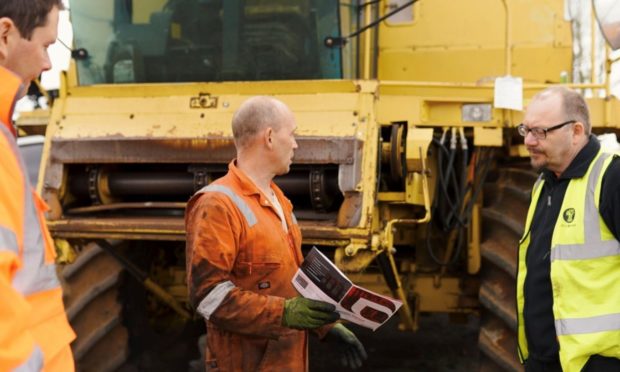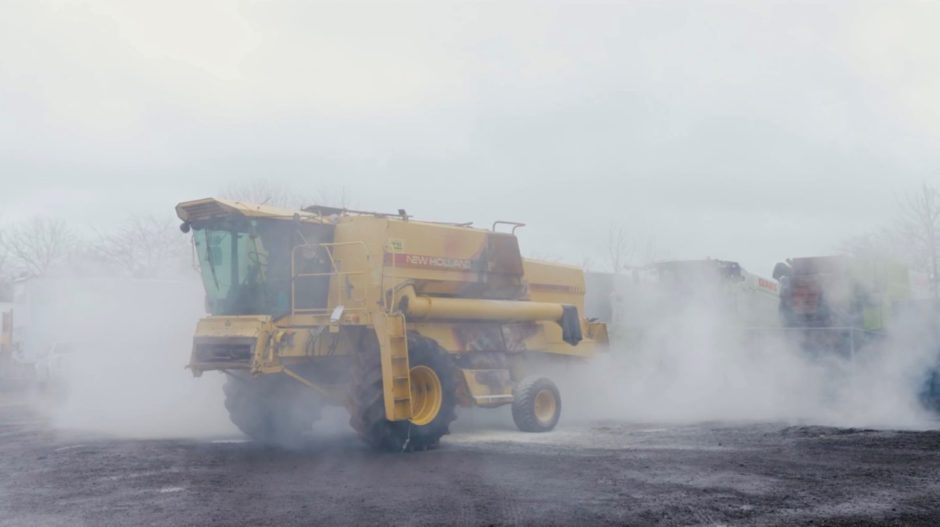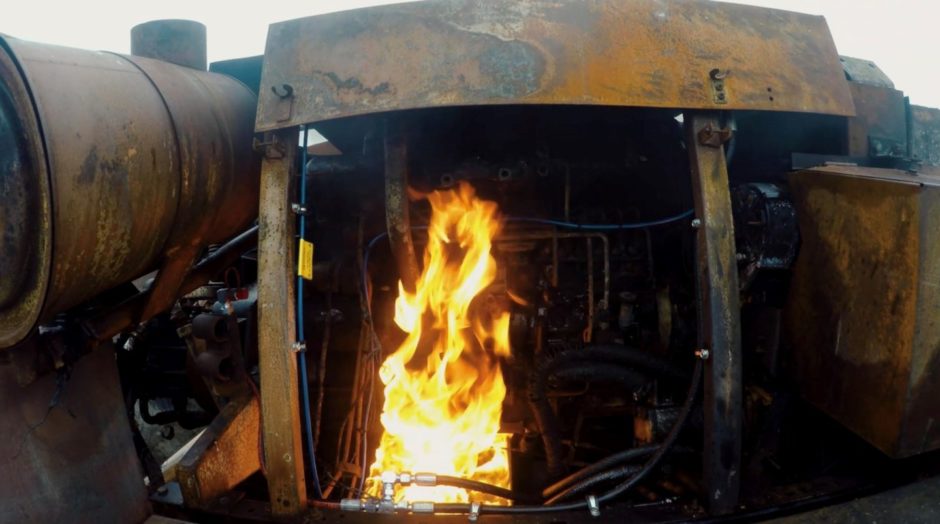More than 80 combines insured by NFU Mutual went on fire during last year’s harvest – including eight which were valued at over £100,000 each.
The soaring cost has led the farm insurer to offer discounted premiums to farmers who install fire suppression kits on their combines, either at point of purchase or retro-fitted – so long as they meet P-mark certification standards.
Tom Murray of NFU Mutual’s underwriting team said: “Combine fires put lives at risk, cause huge disruption to harvesting and destroy expensive machines.
“Tests have shown that fires can be reduced or prevented altogether by suppression systems. When an engine bay catches fire, it needs to be rapidly detected, effectively contained, and quickly extinguished.
“Suppression systems are also effective on fires involving solid combustibles, flammable liquids and electricity.”
The insurer demonstrated the effectiveness of suppression kits by setting fire to a combine and putting a P-mark system to the test.
The kits involve dual agent systems which have two cylinders, one with powder and the other with a foam. The powder acts by interrupting the chemical reaction taking place and cutting off the oxygen supply. The foam suppressing agent in the second cylinder rapidly cools superhot surfaces of over 200°C in larger engine bays which also hold turbo chargers and filters.
Bob Henderson, who leads the insurer’s engineering team, said wider adoption of fire suppression systems could be a serious game changer for arable farming by helping protecting lives, property and the year’s harvest.
He added: “While insurance can cover the cost of a replacement, farmers still risk losing critical harvesting time during a tight weather window and huge difficulty hiring a combine when machines are in high demand.”
NFU Mutual tips to prevent fire this harvest include:
* Regularly clean out dust and chaff from hot spots in combines and balers and check the machine over when you finish use
* Fit a suppression system that meets P-mark status to contain, extinguish and prevent fire
* Use a mobile compressor to regularly blow away debris
* Switch off engines and ensure moving parts have stopped before clearing blockages or carrying out maintenance
* Always stop to investigate hot-running engines or bearings
* Have a plan in place in the event of fire including a system for keeping in contact with lone workers
* Keep mobile phones on you at all times – not left in a tractor or pickup cab
* Make sure drivers are aware of the locations and heights of power lines and check that you will safely pass under wires
* Make sure there is a fire extinguisher on the combine – and that it is regularly maintained – and that you know where the nearest water source is


